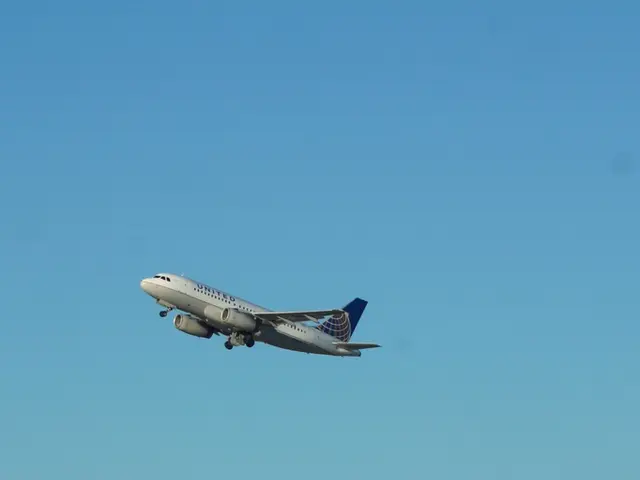Ryanair acknowledges significant reductions in departures from two Danish airports
Michael BarrettSave* 0 comments
Airline giant Ryanair has decided to pull out of Denmark's Billund and Aalborg airports with effect from March, citing the Danish government's decision to implement an air travel tax.
What's Happening?
Following suit, Ryanair will discontinue all routes in and out of Aalborg Airport from March's end. Ryanair asserts that the Danish government's air travel tax, set to go into effect in 2025, is the prime motivator for this decision. The tax, estimated to amount to about 30 kroner per short-distance flight, may have made Billund Airport less enticing for the low-cost carrier due to increased costs.
Quick Facts:
- Ryanair's Billund base represented a $200 million investment.
- The air travel tax is designed to decrease carbon emissions from the aviation industry.
- The move will result in the loss of 32 routes, two aircraft, and 1.7 million plane seats for flights to and from Danish airports. 💸
Background
Aviation taxes have long been a thorny issue for budget carriers like Ryanair, which has historically opposed these taxes, arguing they favor only large corporations and make smaller airports unprofitable. The consequence of these taxes can be a reduction in demand for low-cost carriers, as passengers confront higher ticket prices.
Impacts on Denmark
Clustered within Europe, Denmark is the latest victim of aviation taxes, joining the ranks of Italy, Sweden, and Hungary, which have all abolished such taxes. The Danish government's tax is expected to negatively affect the country’s connectivity, tourism employment, and economy, as it will render Denmark's airports less competitive when compared to those of other EU countries.
Sizzling Scoop
In a heated exchange, Ryanair described the Danish government tax as "short-sighted." They claimed that a "competitive long-term agreement," could not be reached with Billund Airport and expressed concern about Denmark's growing uncompetitiveness within the EU's aviation sector.
Aviation Woes for Ryanair
This is not the first time that Ryanair has faced issues with airport taxes and fees. Ryanair has threatened to reduce flights in Rome due to airport fees and has already left Bordeaux airport in France due to a similar dispute.
Awaiting Response
The Local reached out to Billund Airport for comment on the matter but, at the time of publishing, no response has been received. Updates to this article will appear as soon as a response is acquired.
#Travel News | #Breaking
Share your thoughts below. Have a question or suggestion for our journalists? Email us at news@our website.
Remember our terms of use when commenting.
Please log in here to chime in.
- The Danish government's decision to implement an air travel tax has led Ryanair to pull out of Denmark's Billund and Aalborg airports from March, citing increased costs and uncompetitiveness within the EU's aviation sector.
- The air travel tax, set to go into effect in 2025, is estimated to amount to about 30 kroner per short-distance flight, potentially making Billund Airport less enticing for the low-cost carrier.
- Ryanair's withdrawal from Aalborg Airport will result in the loss of 32 routes, two aircraft, and 1.7 million plane seats for flights to and from Danish airports, which represents a significant impact on the economy and employment in the tourism sector.
- Aviation taxes have been a longstanding issue for budget carriers like Ryanair, who argue that these taxes favor large corporations and make smaller airports unprofitable, potentially reducing demand for low-cost carriers.
- Denmark's implementation of the air travel tax follows the lead of countries like Italy, Sweden, and Hungary, who have all abolished such taxes in the past, citing similar negative impacts on their own connectivity and competitiveness.
- Ryanair has previously threatened to reduce flights in Rome due to airport fees and has already left Bordeaux airport in France due to a similar dispute, indicating a broader trend of challenges within the aviation industry and the transportation sector.
- The Danish government's tax on air travel news could be considered short-sighted, as it may harm the country's connectivity, economy, and employment prospects in the long run, despite its intended purpose to decrease carbon emissions from the aviation industry.








